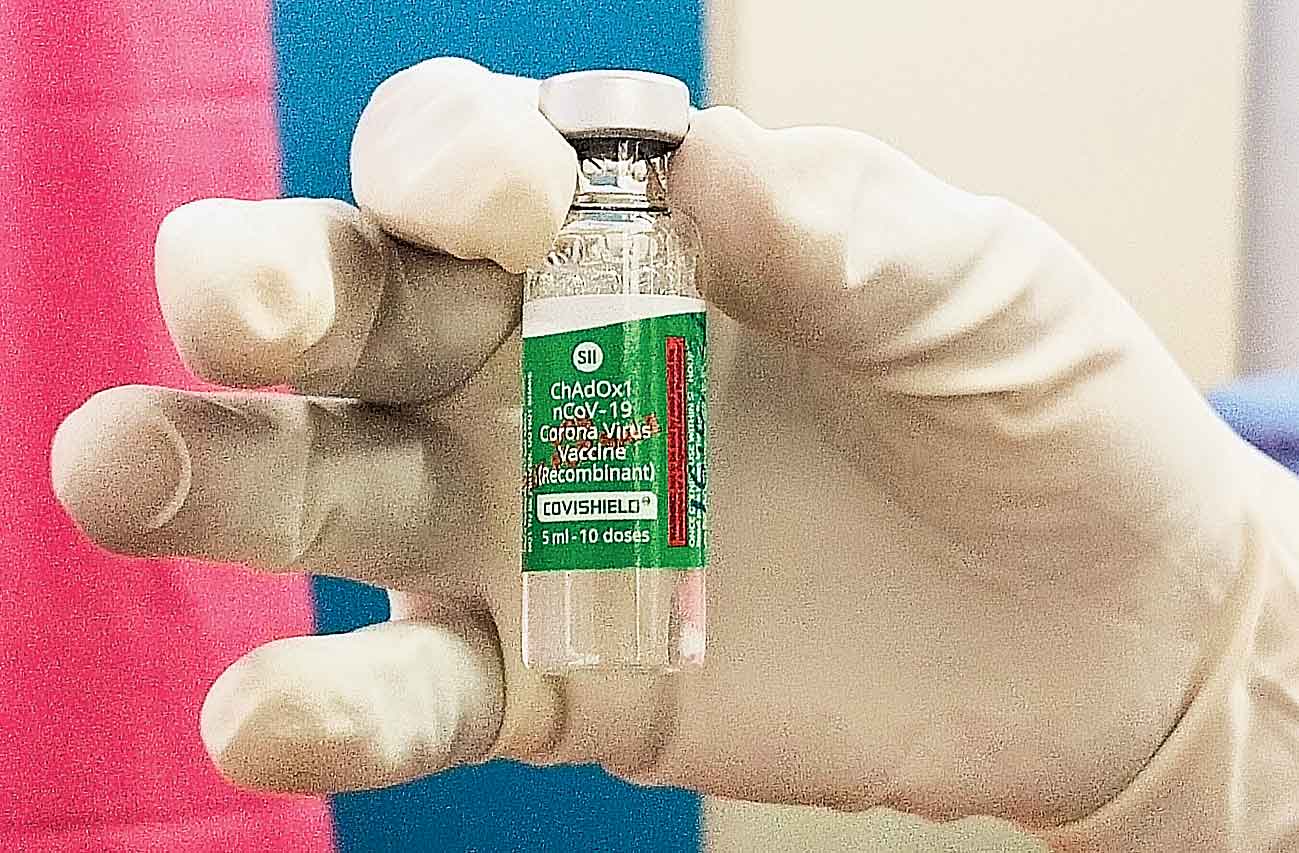India's apex body on immunisation NTAGI has recommended administering the second dose of Covid-19 vaccine Covishield between eight and 16 weeks after the first dose, official sources said on Sunday.
Presently, the second dose of Covishield is given between 12-16 weeks after the first dose under the National Covid-19 Vaccination Strategy.
The National Technical Advisory Group on Immunisation (NTAGI) has not yet suggested any change in the schedule of Bharat Biotech's Covaxin, whose second dose is administered 28 days after the first dose.
The recommendation for Covishield is yet to be implemented in the national COVID-19 vaccination programme.
"The latest recommendation of NTAGI is based on recent global scientific evidence derived from programmatic data," said an official source.
"According to it, when the second dose of Covishield is given eight weeks onwards, the antibody response generated is almost similar when administered at an interval of 12 to 16 weeks," the source explained.
The decision will lead to accelerated administration of the second dose of Covishield to the remaining six to seven crore individuals amid rising cases in several countries, the source said.
The government had on May 13, 2021, extended the gap between the first and second doses of the Covishield vaccine from 6-8 weeks to 12-16 weeks based on the recommendations by NTAGI.
NTAGI provides guidance and advice to the Union Health Ministry on immunisation services for the effective control of vaccine-preventable diseases in the country.
Last year a large hospital-based study in India has found that a single dose of Covishield offers no protection from Covid-19 symptoms or severe disease, amplifying apprehensions about India’s current policy of a 12-week gap between two doses.
The new findings from the Sir Ganga Ram Hospital, New Delhi, bolster the evidence for arguments to shorten the gap between two doses and to prioritise vaccinations for people who have not had prior Covid-19 infections, doctors said.
The Ganga Ram study that tracked over 4,700 hospital workers — doctors, nurses, and paramedics — found no significant differences in the incidence of symptomatic Covid-19 infections, moderate or severe disease, or oxygen requirements between single-dose recipients and the unvaccinated.
While earlier observations from the UK and India had suggested that a single dose of the AstraZeneca vaccine — Covishield in India — offers lower protection than two doses, the Ganga Ram study found “no protection” from a single dose.
The Ganga Ram doctors conducted the study during March and April this year, a period when the highly contagious Delta coronavirus variant was driving India’s second Covid-19 wave with surges in daily new infections across the country.
“A long gap between two doses might not be such a good idea — especially in areas anticipating a surge,” said Ambarish Satwik, a study team member and senior consultant at the hospital’s Institute of Vascular and Endovascular Sciences.
The study also found that previous infections were “significantly protective” against symptomatic infections, moderate to severe disease and oxygen requirements. The level of protection from prior infections appeared to be higher than that offered by a single or double doses of the vaccine.
The “no protection” in the Ganga Ram study contrasts with the 61 per cent protection after one dose observed among healthcare workers at the Christian Medical College, Vellore, and 33 per cent protection reported by Public Health England, the UK’s health agency.
The Union health ministry had on May 23 last year expanded the gap between Covishield doses from 6-8 weeks to 12-16 weeks, citing evidence that a longer gap gives a better response.
Delaying the second dose allows more people to get the first dose and, experts say, the decision to delay doses takes into account potential gains of expanding the pool of people with first doses and the potential risks of delaying second doses.
Sections of health experts in India have been arguing for the need to shorten the gap between Covishield doses at least for vulnerable populations, citing the low protection levels from a single dose noted in the Public Health England study.
“The Ganga Ram study reinforces the urgency of protecting the vulnerable groups and essential workers with both doses as soon as possible,” said K. Srinath Reddy, president of the Public Health Foundation of India and a member of the national Covid-19 task force, who was not associated with the study.
Health officials and medical researchers have cited available evidence, including the CMC Vellore study, to argue that a single Covishield dose also offers some protection against severe disease and death.











